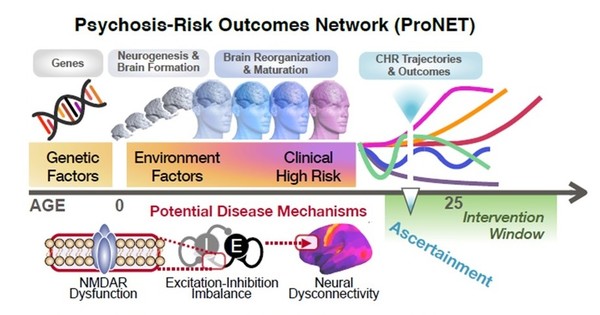The Seoul National University Hospital said its research team of Professor Kwon Jun-soo at the Neuropsychiatry Department will participate in an international study to identify the cause of high-risk psychosis and develop tailor-made treatments.
Supported by the U.S. federal government, the study will receive a $52 million grant from the National Institutes of Health for the next five years.
Scott Woods, professor of psychiatry in the Child Study Center at Yale, will lead the global study where 27 institutions around the world participate through the Psychosis Risk Outcomes Network (ProNET). Most of the 27 institutions are from the U.S. Asian institutions include China’s Shanghai University and Korea’s SNUH research team.

The international joint research team will recruit 1,040 patients with high-risk psychosis to assess brain structure and function, psychopathology and cognition, genetics, behavior, and natural language and speech.
Based on data analysis, the researchers aim to predict individual patients’ clinical outcomes and select those most likely to benefit from specific treatments.
Adolescents and young adults at high risk of psychosis experience general and subtle symptoms such as difficulty in interpersonal relationships, feeling that they have changed, doubts, depression and anxiety, insomnia, and decreased concentration over several years. About 30 percent of those with high-risk psychosis develop mental illness within two to three years.
The early detection and treatment of people with high-risk psychosis are the best way to prevent a serious development of mental illness such as schizophrenia and aftereffects.
Physicians have recognized appropriate treatment before the disease development as an important public healthcare issue because it can reduce the onset risk and prevent the disease early. However, researchers have found it difficult to develop a treatment because initial symptoms and patient patterns became significantly different over time.
“Doctors have treated high-risk psychosis with treatments developed for other illnesses or with the same treatment,” Kwon said. “If we secure clinical and biomarker big data of people with high-risk psychosis, we will be able to develop customized treatments for individual patients using technologies such as AI.”
Since 2004, Kwon has been operating “Youth Clinic” to identify high-risk people to lower the risk of schizophrenia. He has been assessing and treating over 300 high-risk patients through the clinic.

